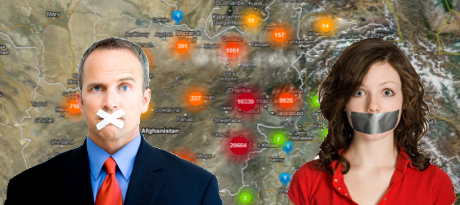State Dept: Discuss Wikileaks, risk your career prospects

An official from the State Department passed onto politics students at Columbia University cautioned them not to discuss, talk about or post Wikileaks materials on Facebook and Twitter. The warning said that it could seriously hamper if not kill their careers in federal government and the civil service.
The email, as reported by the Huffington Post and the New York Times recommends that students "do not post links to these [Wikileaks] documents nor make comments on social media sites", as it could "call into question your ability to deal with confidential information".

The documents though released into the public domain through unauthorised means are still considered confidential and classified. Columbia University's School of International and Public Affairs sent out the email to students warning the dangers that could affect for their future careers, and urged them to consider their actions.
However, this infringes upon two very important principles that not only citizens innately in freedom of speech, but for students in their ability to study under academic freedom.
The ability to access materials and potentially controversial content in the academic setting for the sole purpose of learning is the right and lifeblood of the university and college environment. Academic freedom is one of the most important, sacred rights that higher educational institutions possess.
One prominent example includes Rizwaan Sabir, a postgraduate student at the University of Nottingham, who was arrested and detained for over a week under the UK Terrorism Act. He allegedly accessed "illegal documents" of an al-Qaida training manual which was accessible from a US government website as part of his academic research.
To restrict of all else politics and international relations and affairs students from researching and understanding the inner, hands-on content of the role of the diplomat, as well as the nature of the communiques and the issues governments face on an international level is downright wrong. Universities should embrace the release of the cables as a rare access point for knowledge of the inner-governmental diplomatic workings to allow students to study the role of the diplomat and federal government roles.
But also this forces the student of any discipline or sector to consider their roles on social networks, as the content they publish could have serious knock-on effects to their careers.
On the other hand, whether the email advice could apply to countries other than the United States, it is not clear. I do know however that if it did; I personally could be at risk. My undergraduate dissertation focuses on the threat to national security versus the public interest in direct relation to the Wikileaks release; so if anything, I'm capitalising on the fact these leaks happen.
Do you think discussing Wikileaks should hamper your career prospects? Apply within.